English Vocabulary for Sports (Illustrated)
Everyone loves sports, no matter what language you speak. They are a great way to stay healthy and spend time with family and friends. In addition, sports can help bring people from different countries together. If you don't speak the same language, you can still have fun playing and watching sports with people from other countries.
However, sports are even more fun if you know how to talk about them in English. That's what we think, anyway! That's why we put together this list of English sports words.
In this lesson, you will learn all the vocabulary you need to play sports, watch sports and talk about sports. Let's get started!
This lesson is part of the English Vocabulary Illustrated Word Lists section. Let's get started!
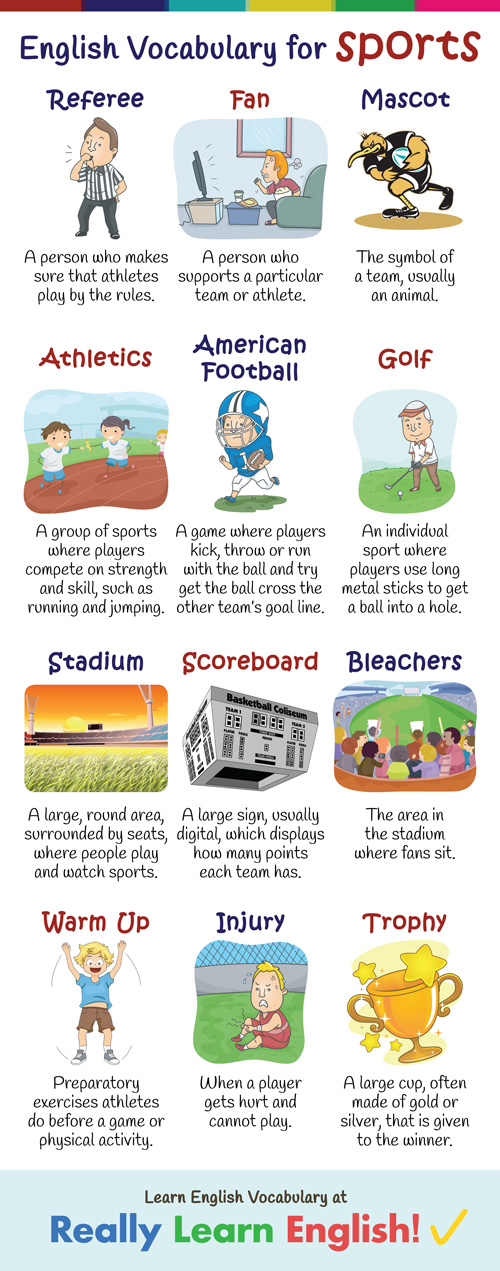
Click Here for Step-by-Step Rules, Stories and Exercises to Practice All English Tenses
In this lesson, we will cover these topics:
- Important People in Sporting Events
- Popular Sports
- Watching the Game
- Olympics
- Other Sports Vocabulary and Expressions
Important People in Sporting Events
Of course, the most important person in any sporting event is the athlete. An athlete is a person who plays sports competitively.
Professional athletes play sports for a career. Amateur athletes play sports competitively, but not for money.
Student athletes play sports while they study at high school or in college. You can also use the word player to describe people who play sports.
Other important people related to sports are:
Coach (noun)
Someone who helps athletes train.
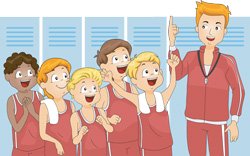
Referee (noun)
A person who makes sure that athletes play by the rules. He or she usually wears a shirt with white and black stripes and blows a whistle to get attention.

Fan (noun)
A person who supports a particular sport, team or athlete.
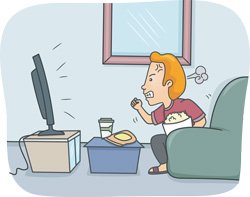
Team (noun)
A group of people who play sports together.
Opposing team or opposition (noun)
The group playing against your team.
Sponsor (noun)
A person who contributes money to a sports event.
Mascot (noun)
The symbol of a team, usually an animal.
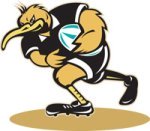
Popular Sports
The most popular sport in the world is soccer (called football in Britain). Are you familiar with these other sports?
American football (noun)
A game where players kick, throw or run with the ball and try get the ball cross the other team's goal line.
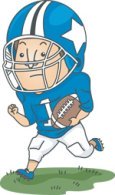
Archery (noun)
An individual sport where players use a bow and arrow to try to reach a target.
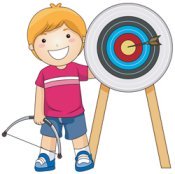
Athletics or Track and Field (noun)
A group of sports where players compete on strength and skill, such as running and jumping.
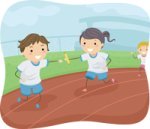
Baseball (noun)
A game where players try to hit a fast moving ball with a bat.
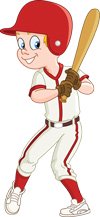
Basketball (noun)
A game where players try to get an orange ball into a basket.
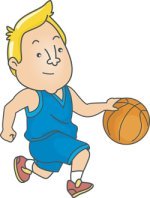
Boxing (noun)
A game where two players fight each other using special gloves.
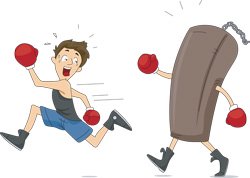
Cricket (noun)
A game where players try to score by hitting a ball with a flat bat.
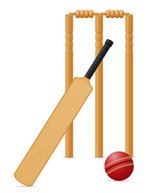
Golf (noun)
An individual sport where players use long metal sticks to get a ball into a hole.

Gymnastics (noun)
A sport where athletes do exercises exercises that show their body's movement, strength, and flexibility.
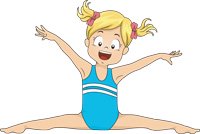
Ice hockey (noun)
A sport where players skate on ice and hit a disc with a stick.
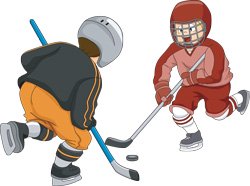
Rugby (noun)
A rough team game where players tackle each other and try to score goals.
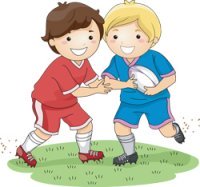
Skiing (noun)
A sport where people go down a mountain as fast as they can.
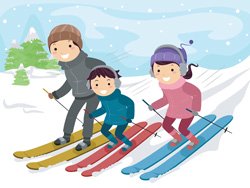
Tennis (noun)
A game where players hit a ball back and forth across a net using rackets.
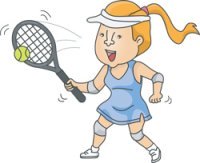
Volleyball (noun)
A game where players hit a ball back and forth over a net without letting it touch the ground.
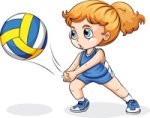
Wrestling (noun)
A game where players fight each other and try to throw or force each other to the ground.
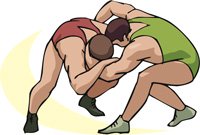
Watching the Game
When you watch or play a game, it's important to know how to talk about the physical surroundings where the game is being played. Most games are played on a field, a pitch or a court. What is the difference?
In general, we use the term field to describe grassy areas where sports are played. For example, baseball games take place on a baseball field, soccer is played on a soccer field, and American football is played on a football field. In British English, the word pitch is used to describe these areas. For example, cricket takes place on a cricket pitch and football (soccer) takes place on a football pitch.
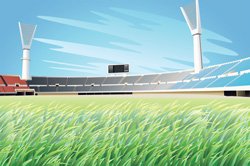
Wooden surfaces are generally called courts. For example, basketball is played on a basketball court. Tennis is also played on a court, even when the surface is made of grass.
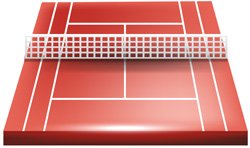
These are some other useful words to describe where sports are played:
Stadium (noun)
A large, round area, surrounded by seats, where people play and watch sports.

Scoreboard (noun)
A large sign, usually digital, which displays how many points each team has.
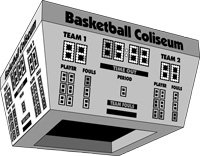
Goal posts (noun)
Upright poles that mark off the area where points can be scored.
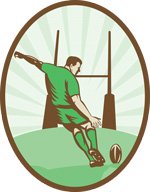
Track (noun)
The space where athletes run in track and field competitions.
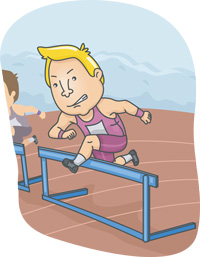
Artificial turf (noun)
A material that looks like grass but is not real grass. Sometimes the field/pitch is not made of real grass, but is made of an artificial material instead.

Bleachers (noun)
The area of a stadium where fans sit.
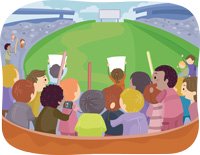
Concession stand (noun)
A space where snacks and beverages are sold.

Olympics
The most important sports event in the world is, without a doubt, the Olympics. The Olympics take place every four years in a different host city. The host city for the 2016 Olympics was Rio de Janeiro, Brazil. In 2020, Tokyo will host the Olympics. Do you prefer the Summer Olympics or the Winter Olympics?
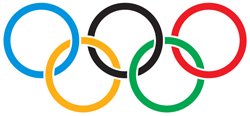
Here are some other useful words to talk about this important event:
Qualify (verb)
In order to participate in the Olympics, athletes must achieve a certain level. If they reach this level, they are said to qualify for their event.
Medal (noun)
When athletes win a competition, they are awarded a medal. Olympic medals come in Gold, Silver and Bronze.

Judge (noun and verb)
The person who evaluates athletes' performance. Also a verb which means to evaluate the performance.
Olympic torch (noun)
In the opening ceremony, athletes carry the Olympic torch through the city as a sign that the games are going to begin.
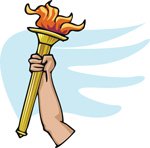
Olympic flag (noun)
A flag with five circles, representing the earth's continents.
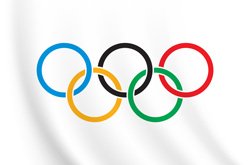
Other Sports Vocabulary and Expressions
Here is some other vocabulary you might need to talk about sports!
Win or beat (verb)
When you have more points than your opponent. (You win a game, but you beat an opponent.)

Lose (verb)
When your opponent has more points than you or your team.
Tie or Draw (noun and verb)
When both teams have the same number of points.
Rules (noun)
The regulations you have to follow to play the sport.
Competition (noun)
An important event where two people or teams compete to determine who is the best.
Championship (noun)
A very important competition.
Trophy (noun)
A large cup, often made of gold or silver, that is given to the winner.
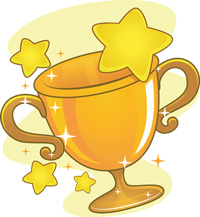
Uniform (noun)
Matching outfits worn by the players so you can tell who is on which team.
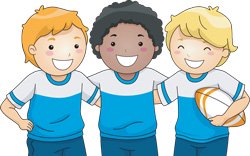
Warm up (noun and verb)
Preparatory exercises athletes do before a game or physical activity.

Cool down (verb)
When athletes do exercises after a game or physical activity.

Cheer (verb)
To clap or applaud loudly to show support for your team. Often led by cheerleaders.
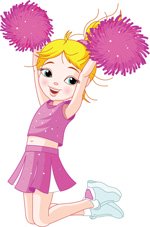
Time out (noun)
When the coach stops the game to give advice to the team.
Half time (noun)
A break taken in the middle of a game.
Rained out (adjective)
When a game is canceled due to rain or bad weather.
Called off (adjective)
When a game is canceled.
Injured (adjective)
When a player gets hurt and cannot play.
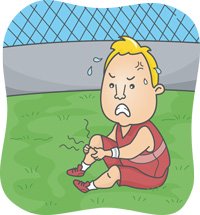
Get Updates, Special Offers, and English Resources
Download your FREE GIFT (the first two chapters of
English Short Stories Book and Workbook)
as soon as you join!

By submitting your email, you consent to receiving updates and newsletters from us and to the sharing of your personal data with third parties for the purposes of sending you communications. We will not spam you. You can unsubscribe at any time. For more information, please see our privacy policy.
Return from English Vocabulary for Sports (Illustrated) to English Vocabulary Word Lists (Illustrated)





